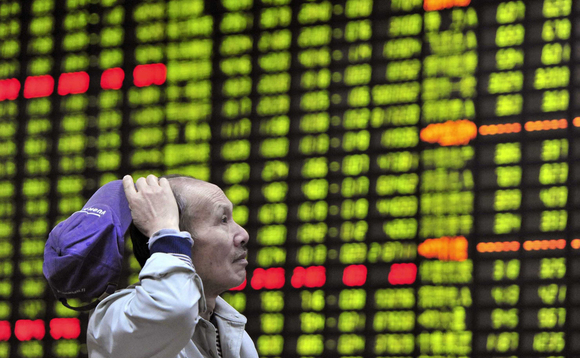
Exits: Stuck in China

The weak IPO market has left many China PE firms holding assets for longer than expected. While growth deals will remain dominant, there will be change in how and with whom they are done
"It feels like this cycle has been more difficult for finding exits than previous cycles. During dot-com crash, it was terrible for everyone trying to exit - you couldn't do an IPO. It was the same in the global financial crisis," observes a GP who focuses on minority growth investments in Asia. "Cycles are natural - always up and down - but the current cycle has dragged on and on."
The situation is particularly acute in China. Domestic listings have been suspended by regulatory fiat for about a year, while it is only in recent months that private equity-backed mainland listings in Hong Kong and the US have regained traction. The volumes and valuations are well short of previous highs.
For many fund managers, investments are remaining on the books beyond the intended holding period, so they are scouting for alternative exits. In the public sphere, these include offshore listings in lower profile jurisdictions and backdoor listings through the purchase of public shells. Privately, an entrepreneur with means could buy back shares from a PE investor; those without might agree a joint exit via a trade sale.
"It's a stress test for portfolio companies as well as for GPs - only the strong will prevail," Judy Ye, managing partner at China-focused fund-of-funds YiMei Capital, says of the exit situation. "It also generates opportunities for secondaries. We expect to see a lot of changes in the local private equity landscape."
Strategic reorientation?
Uncertainty over exits has an inevitable knock-on effect for investment and fundraising. A total of $12.6 billion has been deployed in China deals so far this year, half the figure for 2012 as a whole. Fundraising for both US dollar and renminbi-denominated vehicles has fallen by a similar margin.
The broader question, though, is how far-reaching any changes will be. A number of private equity firms have been forced to reassess their investment strategies for China, realizing they must consider the potential for exits beyond an IPO when addressing target companies. But as long as China remains a predominantly growth capital destination, trade sales and secondaries won't supplant public markets as an exit route.
"I don't think things have really changed. If you're making a minority investment the exit is going to be IPO. If you're taking a controlling stake, your natural exit is going to be a trade sale," says Marcus Thompson, CEO of Headland Capital Partners.
There is a strong case to be made that Asia is over-dependent on IPOs. According to Thomson Reuters, listings by PE-invested companies on the region's major exchanges peaked in 2011, with $29 billion raised through 189 offerings. There were only 79 PE-backed listings on the US bourses that year.
China has been the primary originator. AVCJ Research has records of 170 offerings - on domestic and overseas exchanges - by private equity-invested Chinese companies in 2011, which generated cumulative proceeds of $33.8 billion. South Korea ranked a distant second, with 40 listings and proceeds of $3.9 billion.
The exit dynamic in China will only change in response to evolution on the investment side.
Growth capital and pre-IPO funding has been the lifeblood of private equity since the asset class emerged in the country and it is likely to remain so for a generation. With Chinese private enterprises still enjoying relative youth and growth, owners simply aren't willing to give up control. IPOs deliver the best alignment of interest between entrepreneur and investor.
"IPOs can provide high price-to-earnings (P/E) ratios and, from the entrepreneur's perspective, they don't have to sell their shareholdings. So the investors get to exit, while the entrepreneurs can maximize their enterprise valuation without resorting to a trade sale," says Tony Zhu, who leads the emerging markets program at Munich Private Equity Partners (MPEP).
Looking for control
Nevertheless, the gap between buyouts and growth capital appears to be narrowing.
Buyout deal flow has always been patchy in China, crossing the $2 billion threshold in only three of the last 10 years. The buyout share of overall PE investment fluctuates according to the amount of growth and pre-IPO capital put to work - so the explosion in public markets-oriented renminbi activity saw this share drop from 7.2% in 2009 to 3.1% in 2010.
The sharp drop-off in growth and pre-IPO deals in 2012 - they fell to $9.3 billion from $17.3 billion the previous year - was accompanied by a spike in buyouts. Deal flow more than trebled to $7.6 billion, accounting for 30% of the private equity total.
Clearly, take-private transactions involving Chinese companies listed on US bourses feature prominently in these statistics, notably the $3.7 billion acquisition of Focus Media by a consortium of PE investors and company management. However, anecdotal evidence suggests entrepreneurs are - gradually - more willing to consider buyout solutions.
There are a number of reasons behind this. First, many industries are populated by countless small and mid-size private enterprises and, in automotives and agriculture for example, there is more consolidation. Second, moderating macro growth and intense competition have placed businesses under greater pressure. With rising costs, narrowing margins and a lack of professional management skills, some entrepreneurs just can't keep up.
"The competitive dynamic in China - particularly in consumer-retail - means a lot of these small businesses will struggle to survive. They are looking for help from fund managers, including buying controlling stakes in competitors to ramp up business scale," says Vinit Bhatia, head of Bain & Company's Greater China private equity practice.
Two further factors are expected to tell over a longer period of time. The legion of entrepreneurs who set up businesses in the wake of China's modern economic reforms are now approaching their 60s and considering succession options. If their offspring do not want to assume leadership then sales to third-party buyers become more likely, as has been the case in other countries.
Finally, corporate carve-outs may gain traction as large Chinese companies decide to offload non-core assets. Unitas Capital secured a controlling interest in Shenzhen ZTE Netview Technology, a subsidiary of tech giant ZTE Corp, at the end of last year, but for now most companies remain in acquisitive mode.
Similarly, there have been a few cases in which minority investors have managed to engineer secondary exits to other private equity firms. In the last year EQT Partners purchased a controlling interest in RCS Group, which has franchise rights to Dairy Queen and Papa John's in China, from Warburg Pincus and the local owner, while General Atlantic bought Actis' stake in hotpot chain Xiabu Xiabu.
"The prospect of exiting through a secondary direct sale, which is relatively new in Asia, seems to be gaining traction," notes Thomas Chou, a partner at Morrison & Foerster. "Through efforts from promoters to educate GPs and LPs, combined with the continued pressures on GPs to return capital to LPs, these transactions are becoming a more regular consideration."
NewQuest Capital Partners is one of few firms focusing exclusively on secondaries direct. Developing the market has been tough but the number of sellers is expected to increase over time, particularly if conventional exits routes do not materialize.
"It is a very practical problem right now - if they can't do IPO, how long will it take them to achieve the liquidity they want? The mindset is shifting because of what is happening due to the closed IPO market," says Bonnie Lo, a partner at NewQuest.
A selective market
Neither NewQuest nor any other GP doubts that the public market listings will return. The question is will IPOs return with their former gusto - investors and regulators are likely to be more selective and valuations more muted. For those targeting domestic exchanges, a 50-60 P/E ratio is now the stuff of fantasy, which may still pose a problem, depending on the investor's entry valuation.
Furthermore, the private equity model of investing and flipping a company into a quick listing is no longer as valid with LPs.
"The exit problems LPs complain about are partially caused by LPs themselves. They gave money to someone who shouldn't have received money when they believed that the IPO stories in China could deliver high returns for most investments," says MPEP's Zhu. "We try not to believe in stories that it is easy for investors to grow companies to a certain standard and then deliver 2-3x returns from an IPO exit. Manager selection is the key."
In this context, the focus is switching to managers who can offer more than just Plan A -the IPO exit. A successful fundraise must therefore be underpinned not only by evidence of past returns but also by an ability to support the development of a portfolio company, perhaps over a longer holding period and coping with the macro headwinds that confront much of corporate China.
"In addition to increased focus on their operational experience, some GPs are identifying investment targets where exits can be structured at the outset" says Morrison & Foerster's Chou. "As part of the acquisition of a Greater China business from a global consumer retail business, we have seen clients negotiate options for the repurchase of that asset upon reaching future milestones. This adds a meaningful alternative exit scenario to an IPO."
Small but influential
Adding value as a minority investor is as much about finding the right entrepreneur as the strength of a GP's operational credentials. For many, the attraction of teaming up with private equity remains getting capital as cheaply as possible and with as little investor interference as possible. It is easy for the alignment of interest to break down.
China New Enterprise Investment (CNEI), for example, invested in a consumer business run by a second-generation entrepreneur who subsequently developed a penchant for real estate. With the entrepreneur loosening his focus on the core business, an agreement was reached with CNEI where a new CEO would be appointed in place of the entrepreneur, who would become chairman.
"Every CEO candidate we put before him he rejected," recalls Johannes Schoeter, the private equity firm's founding partner. "He then asked to redeem our shares but it wasn't happening. In the end we told him he could buy back at a higher price than the redemption price and he went for it. We made a 2.3x return but it should have been 5x."
CNEI's value proposition is rooted in a commitment that, with long-term capital and professional support, a portfolio company will be worth more to the entrepreneur if he holds 80% than if he retained complete control and never took on third-party investment. A minority of entrepreneurs buy into this philosophy, so identifying the those with strong businesses who are open to partnership is crucial.
Headland's Thompson echoes the same view, adding that entrepreneurs are generally more receptive to investors with a business background and an understanding of the strategic issues a company faces.
"It's all about how you manage the relationship and that dictates the level of influence you are able to muster," he says. "It's not a question of looking at a business and asking, ‘What do we have to do to get to an IPO?' but asking ‘What do we have to do to improve it?'"
While it is difficult to unwed Chinese private equity from public market exits, the recent challenges have prompted an adjustment in expectations, for entrepreneurs and investors. The model that emerges is likely to be less heady, and characterized not only by valuations that more accurately reflect China's continued growth prospects and but also by the work required to realize them at company level.
"There will always be pre-IPO investments but I think the market is maturing and people are realizing that private equity is a long term game," says NewQuest's Lo. "Expectations are becoming more aligned with the international understanding of private equity that IPO markets cannot be relied on. This is even trickling down to the founders, which is a positive for PE investors."
SIDEBAR: Plan B - Rising tech trade sales
The lack of IPOs in China has inevitably swung investors' focus to trade sales - to the extent they are possible in what continues to be a minority growth capital market.
A total of 98 private equity-backed public offerings generated proceeds of $17 billion in 2012 compared to $2.4 billion from 26 trade sales. In 2013, the balance has turned on its head: there have been 12 IPOs and cumulative proceeds of $3.6 billion for the year to October, while 29 trade sales have amassed $6.4 billion.
Trade sales have been most prevalent in the tech, media and telecom (TMT) space, as China's internet giants pursue diversification through M&A strategies. Baidu, Alibaba, Tencent Holdings and Sina have between them spent $2.5 billion across 15 deals so far this year. In the eight years to 2010, acquisitions totaled $628 million.
"TMT will definitely see more consolidation. The big boys will buy the smaller ones, or the smaller ones will be merged with others - and it provides exit opportunity for investors," says Lye-Thiam Koh, a principal at Northgate Capital, a venture-focused fund-of-funds. "As for other sectors, consolidation is also happening but it is more sporadic."
Baidu has been the biggest spender in 2013, notably acquiring mobile app store and game operator 91 Wireless from NetDragon Websoft and VC investors including IDG Capital Partners, DT Capital Partners, ID TechVentures and Vertex Venture for $1.85 billion.
Traditional retailers have also been active as they push into the online space. Home appliance retailer Suning Commerce recently teamed up with one of its PE investors, Hony Capital, to buy a controlling interest in Chinese online TV provider PPTV for $420 million. Softbank China Venture Capital, Bluerun Venture, Draper Fisher Jurvetson are expected to exit.
Tony Zhu, head of the emerging markets program at Munich Private Equity Partners, adds that some TMT entrepreneurs are overseas returnees and they have also typically spent less time building their businesses than traditional business owners: an internet operator can achieve scale in 5-10 years while it might take a traditional company 20-30 years or more.
"It's not easy for traditional companies to sell their stakes to outsiders because the amount of time they have spent there is much longer," Zhu adds.
SIDEBAR: One year on - Domestic IPO gridlock
The trickle of listings in Hong Kong and the US are a source of encouragement for private equity investors looking to exit Chinese companies. Domestic stock exchanges, meanwhile, have been locked firmly shut for about a year, and the China Securities Regulatory Commission (CSRC) has yet to release a timeline for reopening them.
It is the eighth time IPO activities have been suspended since A-share market's inauguration in 1990.
All the CSRC has said is that IPO approvals will resume once it has improved listing procedures and ensured that companies properly disclose financial information to protect minority investors. Sponsors may face penalties if listing applicants are found to have engaged in malpractice.
However, market watchers suggest said the real reason for the delay is uncertainty about the broader economic impact of a flood of new share issues.
"Perhaps the mainland operators fear that giving IPOs the green light will drain liquidity from the stocks already trading, and given China's economic slowdown they are concerned about keeping the stock market as stable as possible," says John Martin Maguire, head of corporate finance at investment bank Reorient Group.
The listings embargo has led to a tremendous build up of companies that need to raise capital but are unable to do so in the mainland. It has also left PE investors stranded in investments and under increasing pressure from LPs to achieve liquidity. The longer the embargo continues, the worse the damage will become.
According to Deloitte, IPOs are likely to restart around the time of the Communist Party Central Committee meeting scheduled for this month. About 83 companies have passed the CSRC's review and are expected to be the first batch to win approval.
Even so, it will take years for the backlog to clear - the CSRC has never approved more than 150 private equity-backed offerings in a single year, with fewer than 100 coming in 2012 - and some industry participants have expressed disquiet about the severity of the review process.
"What the CSRC has done is an old school intimidation of the bankers and auditors," says one fund manager.
This GP has a portfolio company that approached the CSRC during the review to disclose a potential issue but was told everything was in order. However, the investment banker on the transaction said there was a high chance of the company being selected for special investigation and refused to sign off on it.
"He told us that if that if the CSRC sent in a team of investigation and they find something - and they have never said specifically what they are looking for - then he would be out of a job," the GP explains.
The company had to drop out of the listing queue.
Latest News
Asian GPs slow implementation of ESG policies - survey
Asia-based private equity firms are assigning more dedicated resources to environment, social, and governance (ESG) programmes, but policy changes have slowed in the past 12 months, in part due to concerns raised internally and by LPs, according to a...
Singapore fintech start-up LXA gets $10m seed round
New Enterprise Associates (NEA) has led a USD 10m seed round for Singapore’s LXA, a financial technology start-up launched by a former Asia senior executive at The Blackstone Group.
India's InCred announces $60m round, claims unicorn status
Indian non-bank lender InCred Financial Services said it has received INR 5bn (USD 60m) at a valuation of at least USD 1bn from unnamed investors including “a global private equity fund.”
Insight leads $50m round for Australia's Roller
Insight Partners has led a USD 50m round for Australia’s Roller, a venue management software provider specializing in family fun parks.







